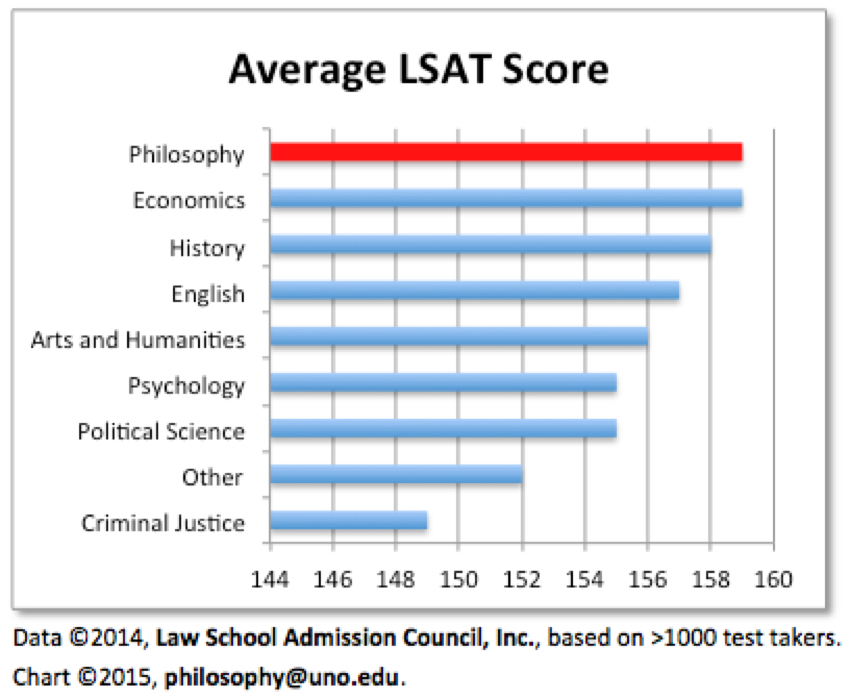Philosophy and Law School
 “Philosophy at the University of Guelph has prepared me for law school by giving me the opportunity to develop my critical thinking skills while simultaneously advancing my capacity to dissect complex texts and argumentation. Classes like Critical Thinking and Formal Logic have given me insight into argument forms that directly translated into an understanding of LSAT problems. I was very satisfied with my LSAT score after my first attempt.
“Philosophy at the University of Guelph has prepared me for law school by giving me the opportunity to develop my critical thinking skills while simultaneously advancing my capacity to dissect complex texts and argumentation. Classes like Critical Thinking and Formal Logic have given me insight into argument forms that directly translated into an understanding of LSAT problems. I was very satisfied with my LSAT score after my first attempt.
I have also been able to directly develop my understanding of the law. Classes like Philosophy of Law and Theories of Justice have given me insight into the core concepts of justice and jurisprudence. Plus, I get to study general trends in society while studying political philosophy. And more practically, ethical theory informs my understanding of proper conduct within legal fields. Matthew Hernandez, 4th Yr. Philosophy Major, applying to law schools for 2024 with an LSAT score of 164.
Philosophy is an excellent pre-law major, possibly the best...

Is there a reason Philosophy Majors have success on the LSAT? The answer is yes.
Most of your philosophy courses won't have anything to do with the law. Instead, they will ask you to consider some belief in some area and then ask how that belief can be supported. What are the reasons--and the arguments--you can give for and against that belief? Philosophy, like the law, is concerned with good and bad reasons, with arguments and--super important--with what makes reasoning good and bad. Courses like Symbolic Logic and Critical Thinking address these questions head on, but they are always in the background in every philosophy course.
Philosophy is about argument and reasoning, and it’s not afraid to deal with difficult texts. Its also not concerned with memorization of large bodies of material. Not to say this is unimportant. To be a good philosopher of law, you would need to learn quite a bit about the law. But the sort of skills that the LSAT tests for don’t have anything to do with how much knowledge you have about particular topics. The skills that LSAT, and law schools, and law firms, are interested in are more general: How well can you reason? Can you construct your own arguments? Can you evaluate other people’s arguments? These are exactly the skills that all philosophy courses focus on. They aim to make you a better, more creative reasoner capable of constructing and evaluating your own arguments.
So here is what we are saying: You don't take philosophy because you want to learn a bunch of facts about the law. Those, you learn in law school. You take it because it hones your reasoning and argumentative skills in a way that matters to the legal profession. The proof is in the pudding. Just take a look at the average LSAT scores. But it’s not just about LSAT scores, it’s about admission to law school as well...
According to a 2014 analysis of data from the Law School Admissions Council (USA) by Derek Muller, Bouma Fellow in Law and Professor of Law at the University of Iowa College of Law, Philosophy Majors were admitted to law school at a higher percent than any other major — 75 percent, according to an analysis of data provided by Muller.
Here is a program of study for a Philosophy Major interested in the law:
First Year.
PHIL*1010 Social and Political Issues (though any first year course is great!)
Second Year.
PHIL*2110 Formal Logic OR PHIL*2100 Critical Thinking (preferably both)
PHIL*2120 Ethics
PHIL*2140 Ancient Greek Philosophy OR PHIL*2160 Reason vs. Experience
PHIL*2180 Philosophy of Science OR PHIL*2240 Knowledge and Belief
Third Year.
PHIL*3040 Philosophy of Law
PHIL*3230 Theories of Justice
PHIL*3370 Ethics of Artificial Intelligence
Fourth Year.
PHIL*4820 Philosophy Research Presentation
This is not the only path for a Major in Philosophy interested in the law. It leaves room for courses in Philosophy that you have specific interest in (maybe feminist philosophy, the philosophy of business, the philosophy of medicine or the environment? --we offer these and many others). It also focuses on skills, concepts, and areas of study important to law schools. To make a specific program a reality for you, start by talking to us. Our faculty advisor exists for just this reason! : Stefan Linquist (linquist@uoguelph.ca). You can also talk to the Bachelor of Arts Counselling Office. (baco@uoguelph.ca) An individual counsellor will help you find your way through your BA, and they know tons about the Philosophy program.
Philosophy Majors get guaranteed enrollment in all philosophy courses. Starting in fall 2024, there will be a second year, team taught course just for Majors, introducing you to current research in philosophy. 4th year Philosophy students take the capstone course, 4820—Philosophy Research Presentation, where you workshop an essay from inception to a conference style presentation.